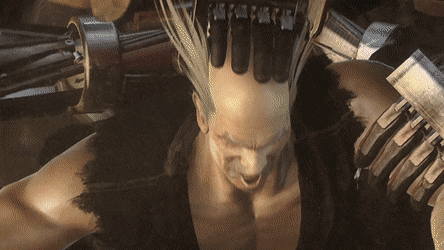Were The 2000's Really a 'Dark Age" for Fighting Games?
/The period from 2000 to 2008 often holds a bad reputation amongst the Fighting Game Community (FGC), often being referred to as “the Dark Age of Fighting Games”. But was it really that dark? How accurate is this moniker? Let’s take a good, hard look at the state of the genre and its community at that time to see how dark things truly were.
If we look at the fighting games that were released during this period, the sheer number certainly decreases around 2000, but the actual quality and reputation of many of these titles already put the “Dark Age” moniker into question. Right off bat, the first two years include such landmark titles as Marvel Vs. Capcom 2 and Capcom Vs. SNK 2, both beloved classics that are still praised to this day. Of course, these are the last big fighters Capcom would release until 2008’s Street Fighter 4, which left a massive vacuum to fill. Let’s look at the other notable series and developers to see how they fared in an industry that had lost its king.
Opening cinematic of tekken 5/ Courtesy of the fighters generation.com
SoulCalibur 2 released in 2002 to immediate acclaim, propelling that series to the highest heights it has ever seen, and being a must have title of that era. Its follow up didn’t sell nearly as much, mainly because of its PS2 exclusivity, but SoulCalibur 2 remained a very influential game in the space at that time. Bandai Namco’s other fighting franchise Tekken almost had the opposite arc during these years. Tekken 4 is generally considered one of the weaker entries in the franchise, but Tekken 5 did incredibly well, being the second most successful entry at the time. Overall, Bandai Namco’s fighters had their highs and lows during this period, but the highs were nothing to scoff at.
When it comes to Mortal Kombat the 2000’s were a very odd period. The games released back then hold a reputation not unlike the Star Wars prequel trilogy, being widely mocked laughing stocks for the longest time, until a recent emergence of nostalgic fans sparked a re-evaluation of sorts. Many now fondly remember many of the traits introduce in this era, from certain kharacters to the approach to single player kontent and game modes. The first game in this era, Mortal Kombat: Deadly Alliance was the only one to reach notably high sales.
King of FIghters 2002 Gameplay/ courtesy of kyoflameashyden on Deviantart.com
Plenty of developers and series were filling the space as well at this time. Capcom’s old rival SNK was also hit hard by the decline of arcades, but still continued pumping out fighters. With the likes of the NESTS saga of King of Fighters, the fan favourite KOF 2002, and more Samurai Shodown titles, they kept their presence alive and their fans entertained. They weren’t gaining much attention outside of their pre-existing following though. Arc System Works’ Guilty Gear series was slowly but surely building a loyal community that would eventually become a juggernaut many years later. Tecmo’s Dead or Alive series was releasing its most beloved titles and doing quite well, despite (or perhaps because) of the reputation it garnered from its heavy sexualization. As we can see plenty of games were coming out, though most weren’t making much of a splash outside of their own small circles.
Guilty Gear xx accent core plus r character select screen/ courtesy of Steam
Gameplay screenshot of Dead or alive 4/ Courtesy of Neoseeker.com
Upon analysis, it seems that the problem wasn’t a lack of games, or even a lack of good games, but rather an absence of truly huge breakout titles. No one had managed to fill the same role Street Fighter once had, as the singular must-play game everything revolved around. There was no core blockbuster game that the entire community collectively bolstered as one. The FGC was less one big entity supporting the whole genre and more a collective of smaller communities built around specific games. Without its king or the bonding glue of arcade culture, the community was fractured, and no one else could put it back together. Everyone sticking to their own self-contained little bubbles caused the genre and its community to mostly go under the radar. Fighting games were not at all ‘dead’ during the so called ‘Dark Age’ but they were largely unseen with a few exceptions. It was less a ‘Dark Age’ and more of a ‘Dormant Age’ before the rise of online play and the return of Street Fighter would initiate another boom around 2009.
Street Fighter 4 banner/ Courtesy of interace in game.com
Gareth Myers - A hardcore casual fighting game scrub, childhood Nintendo baby, and practically the text book definition of a basement dwelling nerd. I have spent many an hour studying the history and art of videogames, when I probably should have spent that time learning even the most basic combos to avoid online bodying. I wish to one day use my writing talents to make my own sci-fi fantasy novels to bring my own characters and stories to life, but until then rambling about games for the internet will be fine enough practice.








